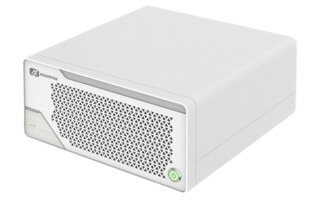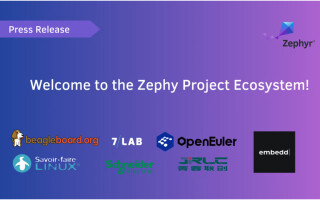Optimizing Embedded System Functionality with the Right OS
December 14, 2023
Blog

Embarking on a new project for an embedded product involves critical decisions, chief among them being the selection of an appropriate operating system (OS). Much like how the foundation of a building sets its resilience and longevity, the choice of an OS significantly affects a product's performance, scalability, and user-friendliness. Considering the plethora of available options, understanding the nuances of each becomes vital.
Here we shall provide an overview of four prominent operating systems – Yocto, Boot to Qt, Debian, and Android – and their suitability for embedded software platforms in smart product design. We will delve into the strengths and weaknesses of each, offering insights to assist you in making an informed decision for your embedded project.
Yocto Project: A Custom Linux Creation Powerhouse
The Yocto Project is a pivotal open-source endeavor designed to assist developers in crafting customized Linux systems adaptable to a variety of hardware architectures. This project stands out for its ability to create packages from source code using a manifest. This feature is particularly beneficial for reproducing software versions consistently, even those developed years ago, ensuring uniformity across different systems.
A significant advantage of Yocto is its assurance of reproducible software configurations. All configurations on deployed devices can be reliably traced and recreated from the source code. The flexibility in patching and updating is another notable strength. Yocto maintains consistent package versions across all devices, which is essential for uniformity and stability in system performance. Moreover, the project is efficient in resource utilization, as it allows for the customization of the final software image to include only necessary packages. Thereby, optimizing the use of system resources like RAM, storage, and CPU.
However, the Yocto Project does present certain challenges. Newcomers might find the learning curve steep due to its intricate processes. The image building process is both time and resource-intensive as it involves compiling most packages from source. Additionally, when it comes to integrating new packages dependency management can be complex. If a new package requires additional dependencies it might necessitate a complete rebuild and reinstallation of the image on the target device.
The Yocto Project offers a powerful platform for developing tailored Linux-based systems. However, it requires a balance between its advanced customization capabilities and the complexity involved in its utilization.
.jpg)
Boot to Qt: Streamlining Qt-based Embedded Development
Boot to Qt, offered by The Qt Company and pronounced "cute", is a specialized layer designed to enhance the Yocto Project for Qt-based application deployment on embedded devices. This platform combines the foundational strengths of Yocto with additional capabilities tailored to the Qt framework. As such, it shares many of Yocto's characteristics but its primary distinction lies in its seamless integration and support for applications developed using Qt.
Key features of Boot to Qt include offering updated versions of Qt surpassing those available in corresponding Yocto releases. This ensures developers have access to the latest Qt functionalities that are vital for cutting-edge application development. The Qt Company facilitates this process by providing extensive documentation and toolchains for building applications, especially beneficial for developers in Windows environments. This support extends to macOS leveraging Qt's Docker-based toolchains for application development.
However, it's important to consider the licensing requirements when using Boot to Qt for commercial purposes. Developers must comply with The Qt Company's commercial licensing terms, a critical factor for those deploying products commercially. Overall, Boot to Qt stands out as a robust solution for enhancing the development and deployment of Qt-based applications on embedded systems, marrying Yocto's reliability with Qt's advanced features.
Debian GNU/Linux: The Veteran of Flexibility and Ease
Debian GNU/Linux is renowned in the Linux community for its robustness and user-friendly software management powered by the Advanced Package Tool (APT). This long-standing reputation as a reliable and versatile distribution makes it a preferred choice among developers for a variety of applications. The APT system, a cornerstone of Debian, streamlines the installation of a wide array of precompiled packages and their dependencies, greatly facilitating rapid prototyping.
The distribution's longstanding presence has fostered a large active community and an extensive pool of documentation providing invaluable support for development and troubleshooting. Additionally, Debian's approach to software updates is notably user-friendly. The availability of Debian repositories allows for easy and secure software upgrades, keeping systems up-to-date and secure. This ease of updating packages and deploying minor updates contributes significantly to Debian's appeal in the developer community.
Debian's integration into embedded systems is not without challenges. The non-atomic nature of updates means that power loss during an update could lead to system misconfigurations. Additionally, the potential for package version mismatches between different devices can complicate troubleshooting and consistency in field-deployed systems. Moreover, the stability of Debian in certain contexts may be a concern, as the lack of source code compilation by developers could hinder the reproduction of specific system images in the future. Despite these challenges, Debian GNU/Linux's balance of robust functionality and user-friendly operation maintains its standing as a strong choice in the Linux distribution landscape.
Android OS: The Ubiquitous and Developer-Friendly Option
Android OS has evolved from its mobile device roots to encompass a wide range of platforms and devices. Its popularity stems from widespread use and developer familiarity, making it a go-to choice for projects beyond just smartphones and tablets.
Customers often prefer Android due to developer comfort with the ecosystem and its comprehensive capabilities. A key feature of Android is its native support for Widevine, which enables the decryption of DRM-protected content enhancing its utility in media-rich applications. The OS's dominance in mobile markets has also fostered a wealth of developer resources and community solutions.
Android does have some challenges, most notably its higher demands on system resources like RAM, CPU, and storage, compared to other operating systems. Additionally, upgrading between Android versions can be complex, occasionally requiring storage device re-partitioning. Despite these issues, Android's adaptability and familiarity maintain its status as a versatile and widely-used operating system.
Tailoring Your OS Choice to Project Needs
Choosing the right operating system (OS) for an embedded project is vital, with each option like Yocto, Boot to Qt, Debian, or Android offering distinct strengths and challenges. Yocto is ideal for custom Linux systems Boot to Qt excels in Qt-based application integration. Debian is known for its robust package management, and Android is favored for its wide adoption and rich media capabilities. Whatever OS is used, the decision should align with the project's specific needs and goals considering factors like resource needs, development ease, and community support. No OS fits all scenarios, but an informed choice can significantly contribute to the project's success, ensuring the OS not only meets current needs but also supports future growth and adaptability.
For more information, contact Variscite.





